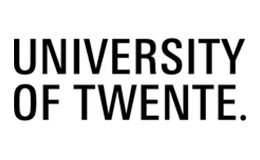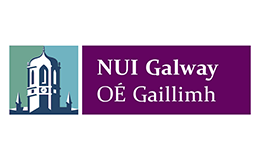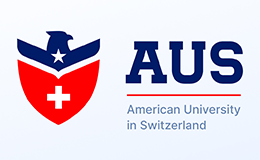Intercultural Competence: A Quality That Corporates Admire
Why Intercultural Competence is Essential

INTERCULTURAL COMPETENCE: A QUALITY THAT CORPORATES ADMIRE
What is Intercultural Competence?
It is the ability to develop direct knowledge, skills, and attitudes that lead to visible behavior and communication that are both efficient and appropriate in intercultural interactions. It is the practice of behaving and communicating appropriately with those who are culturally different, often at shared spaces, teams, and organizations that are inclusive, effective, innovative, and satisfying. Cultural competency is important for effective functioning in a variety of areas including healthcare, education, public services, law enforcement, libraries, customer service, and other business functions. Also, a sensitive approach to cultural influences may even improve relationships at home and in the community.
Why is it Important?
- Geert Hofstede, the most famous researcher in the field of culture, refers to culture as a ‘Programming of the mind’. ‘Intercultural Competence’ has figured prominently about ‘global citizenship’ as a graduate aspect for many years.
- LisaRe Babin, a research psychologist states that this competency builds knowledge, skills, and abilities that help someone successfully engage with people belonging to another culture.
- People from bilingual backgrounds are already conditioned and experienced to think about the world in two different ways. Babin says – when they are introduced to a foreign environment, they may have the required listening skills, observation skills, and motivation to interact with people that makes their cross-cultural experience more definitive.
- Jennifer Klafehn, an associate research scientist says – individuals who are experienced and motivated to engage with other cultures and are welcoming to new and different ideas are going to be more likely to explore and make use of information that helps them adapt to new environments.
Constituent elements of Intercultural Competence
Knowledge
- Cultural self-awareness – Affirming how one’s own culture shapes one’s identity and worldview
- Cultural specific knowledge – determining and explaining different information about other cultures like history, values, politics, economics, communication styles, beliefs)
- Sociolinguistic awareness – Obtaining general language skills, articulating difference in verbal or non-verbal communication, and adapting one’s speech to accommodate national from different cultures
- Grasp of global issues and trends – Explaining the meaning and indications of globalization and connected issues to global forces.
Skills
- Listening, Observing, and Evaluation – Using patience and determination to identify and decrease ethnocentrism.
- Analyzing, Interpreting, and Relating – Seeking out linkages, origin, and relationships using comparative techniques of analysis.
- Critical Thinking – Observing and interpreting the world from other cultures’ points of view and identifying one’s own too.
Attitudes
- Respect – Looking out for other cultures’ attributes, value cultural diversity, thinking relatively and with beliefs for cultural differences.
- Openness – Suspending criticism of other cultures, investing in collecting facts of cultural difference.
- Curiosity – Looking out for intercultural interactions, considering differences as a learning opportunity.
- Discovery – Accepting ambiguity and taking it as a positive experience, readiness to move beyond one’s comfort zone.
Outcomes
- The above knowledge, skills, and attitudes result in internal outcomes in an individual who learns to be flexible, adaptable, and empathetic and gains an ethno-relative perspective.
- These qualities eventually reflect externally in the observable behavior and communication styles of the individual. These are signs that the individual is, or is learning to be, intercultural competent.
Workforce training in Intercultural competence
- Carol Olsby, a human relations consultant who is head of the Global HR Consortium states that companies are usually on the hunt for employees with intercultural skills and experience and also experience trouble finding them.
- In a survey of about 2700 HR execs conducted under the Society for Human Resource Management in 2016, 15% of the respondents stated that they had experienced shortages in job applicants’ diversity skills like ‘the ability to work well with a diverse workforce and customer base’.
- Research by McKinsey reports that companies with more diverse staff make more money. It is known that such diversity and intercultural understanding give a competitive advantage. Businesses and organizations that understand this benefit try to establish intercultural competence in their employees by way of training, mentoring sessions, coaching, and other means – says Olsby.
- In the military, soldiers who are going to deploy to foreign countries are first deployed to simulated villages where they practice with actors-villagers and get familiar with a culturally unfamiliar environment.
Diversity and intercultural training in education
- The Department of Education, US has issued a framework for establishing global and cultural competencies that give initial learning followed by elementary, secondary, and postsecondary education. The curriculum aims at developing empathy, cultural understanding, and other collective skills.
- There are many organizations offering training to teachers and students in global intercultural competencies.
- Lisa Adams, a consultant in the human rights department (California Teachers Association), undergoes a three-day professional development workshop that focuses on equity in education and topics like implicit bias, cultural competence, and the impacts of stereotyping.
- A school near Chicago – Skokie School District 68, has students who speak about 60 languages. English is the most prominent, trail by Urdu as the second most prominent language followed by Assyrian, Arabic, and Spanish – says Barbara Marler, Director of English Learners for the district.
- Colleges and universities also highlight global competencies that can enhance their students’ personal qualities for the workplace. Appalachian State University in Boone, N.C., arranges an undergraduate Global Connections certificate that includes workshops where faculty and students are taught about unconscious bias, and staff is trained to include global content, cultures, and languages into existing courses.
- Acquiring knowledge about intercultural competence at the collegiate level is increasingly significant to meet the demand for graduates who can work more productively with a diverse team.
If you wish to study abroad, please connect with Whizstorm for the best international career plans.





































.png)









.png)
























.png)















.png)





